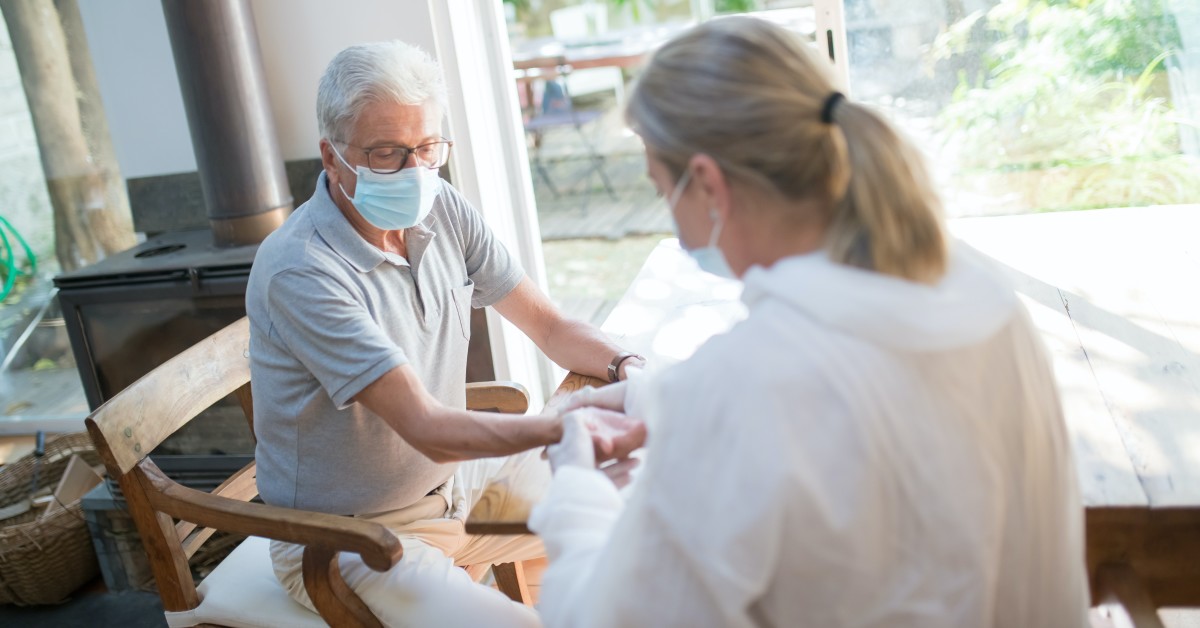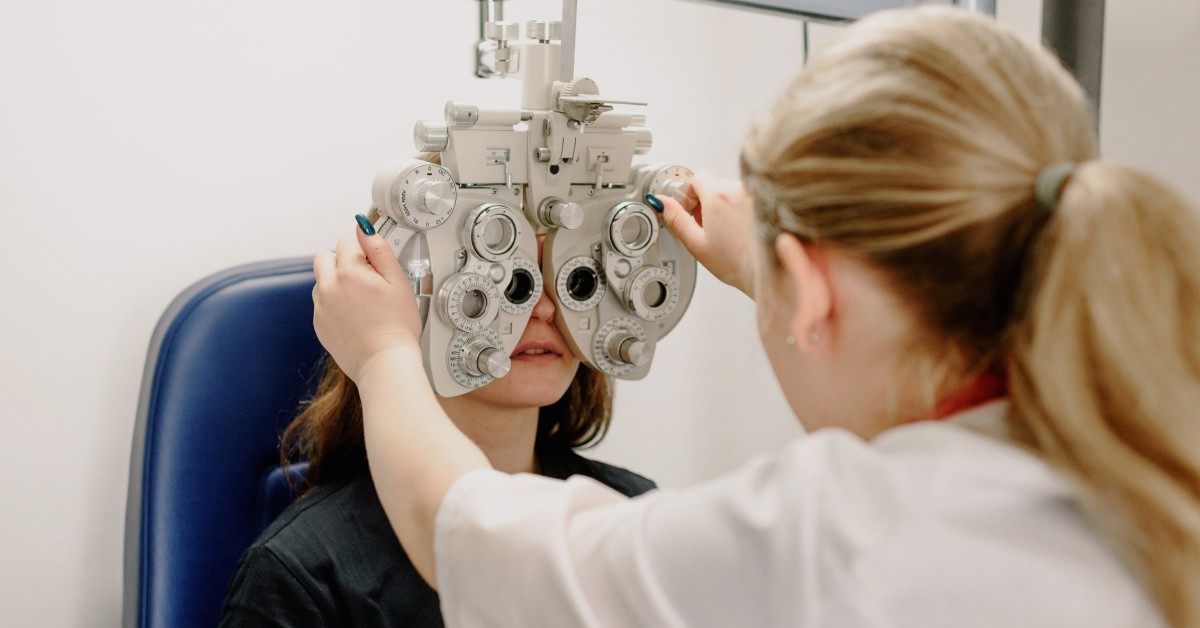
How to Become a Licensed Mental Health Social Worker
We explain the steps necessary to become a licensed mental [...]

According to the U.S. Census Bureau, 2034 marks the year Americans over 65 will begin to outnumber those under 18. Elder citizens require more constant medical care that will further strain an already overburdened hospital system. A growing physician shortage exacerbates the problem.
Luckily, a new class of medical professionals is stepping in to meet the increasing demand. Graduate-level-trained nurse practitioners (NPs) are leading this effort. In many instances, NPs can practice without the supervision of physicians. They can even operate private practices in many states.
This article describes the steps to become a nurse practitioner. Topics include:
Nurse practitioners are master’s-level advanced practice registered nurses (APRNs) who, in many states, can offer many of the same services as a physician, including diagnosis, treatment planning, and medication prescription. Depending on the state, NPs may work autonomously or under a physician’s supervision.
The American Association of Nurse Practitioners (AANP) reports that patients visit NPs over a billion times annually. A severe physician shortage has helped make NPs many patients’ care providers of choice.
NP specializations make for widely varying duties in the workplace. Pediatric nurse practitioners work with children and adolescents; women’s health nurse practitioners serve women. Other common NP disciplines include acute care, adult health, primary care, family health, and psychiatric and mental health. NPs can work in many environments, including hospitals, inpatient and outpatient clinics, and private practices.
Becoming a nurse practitioner entails a multi-step process. This section explores common pathways to achieving this career goal.
First, you must complete an undergraduate education to become a registered nurse (RN). Professionals can earn an Associate Degree in Nursing (ADN) or complete a hospital-based nursing program. The preferred degree program, however, is a Bachelor of Science in Nursing (BSN). New York recently passed a law requiring all new non-BSN nurses to earn bachelor’s degrees within ten years of practice.
BSN programs are more rigorous than other options. They typically take four years to complete and include extensive clinical practice opportunities. BSN curricula include anatomy, microbiology, nursing research and assessment, nutrition, pharmacology, and nursing theory. Students can apply to a BSN program right out of high school; those holding a bachelor’s degree in another subject can enroll in an accelerated program.
BSNs provide students with a more straightforward path to graduate admission. Most programs cater to individuals with bachelor’s degrees. RN to MSN programs offer another option, folding bachelor’s-level content into an extended master’s program.
After graduating from an undergraduate program, aspiring NPs take the National Council Licensure Examination (NCLEX-RN) exam, which tests essential nursing competencies. Those who pass then complete any additional state requirements, which frequently includes undergraduate transcript(s) and paperwork reflecting a clean background check.
Many, though not all, NP programs require at least two years of nursing experience. According to a 2015 study, the average NP gained 13.75 years of experience as an RN before pursuing further nursing education.
NPs can choose from two graduate degree options: a Master of Science in Nursing (MSN) or a Doctor of Nursing Practice (DNP). Doctoral degree programs cover similar subjects as master’s degree programs but in greater depth. DNPs often require at least three years of full-time study rather than the two often required by MSNs. While some industry leaders want the DNP to become the standard NP education, the MSN remains more popular. Both programs are available in-person and online.
Whichever pathway you choose, expect to learn about nursing theory and practice. Coursework typically includes health assessment, patient care, pharmacology, and pathophysiology. Doctoral programs can offer additional leadership, evidence-based practice, and administration coursework.
Your specialization also determines the subject matter of your coursework. Psychiatric mental health nursing students complete coursework related to psychotherapy, psychopharmacology, and treating families and adolescents. Adult gerontology nurse practitioner program students work with the elderly. All programs include practice rotations in a clinical setting; the number of hours depends on your school and specialization. Each one imposes different licensure requirements.
Earning a license means passing the requisite national certification exam for your specialty area. For instance, psychiatric nurse practitioners take the Psychiatric-Mental Health Nurse Practitioner (Across the Lifespan) Certification (PMHNP-BC) through the American Nurses Credentialing Center (ANCC). Family nurse practitioners take the Family Nurse Practitioner (FNP) certification through the American Academy of Nurse Practitioners. Exam layouts and qualification requirements can differ among regulatory bodies but expect to earn 500 or more hours of clinical experience and a diploma from a graduate program with proper accreditation.
Those who pass can apply for state licensure. Again, requirements differ by state, just as for RNs. Each state also has unique continuing education requirements to maintain licensure.
NPs can pursue additional nurse practitioner certifications to improve their skills and land new nursing leadership or administrative roles. Options include the Nurse Executive Certification (NE-BC) and Nurse Executive Advance Certification (NEA-BC). Both certifications are open to RNs, but many of these nurse leaders hold graduate degrees. These certifications can lead to a role as a nursing director; these professionals serve as connective tissue between administrators and staff nurses, helping to establish hospital policies.
Many states allow nurse practitioners to operate private practices. However, NPs may need to meet specific experience requirements to do so. For example, New York requires at least 3,600 practice hours for an NP to open a private practice.
Becoming a nurse practitioner can be financially rewarding. NPs earn excellent salaries. The United States Bureau of Labor Statistics (BLS) notes that nurse anesthetists, nurse midwives, and nurse practitioners make a median annual income of about $124,000. Additionally, they enjoy an excellent job outlook, with the BLS projecting a 40 percent increase in employment between 2021 and 2031.
The cons of this profession are similar to those of nursing in general; burnout is a common occurrence. One study reports that nearly a third of NPs considered changing careers during the pandemic. Of course, the pandemic led to conditions that were anything but business as usual. NPs who continue this critical work have every reason to hope for a promising future.
Questions or feedback? Email editor@noodle.com

We explain the steps necessary to become a licensed mental [...]

Neonatal nurse practitioners deliver essential healthcare to newborns with high-risk [...]

Adult gerontology nurse practitioners earn six-figure salaries across the United [...]

Licenced practical nurses (LPNs) deliver essential services to patients across [...]

Optometrists conduct eye exams that detect not only myopia, glaucoma, [...]
Categorized as: Nurse Practitioner, Nursing & Healthcare